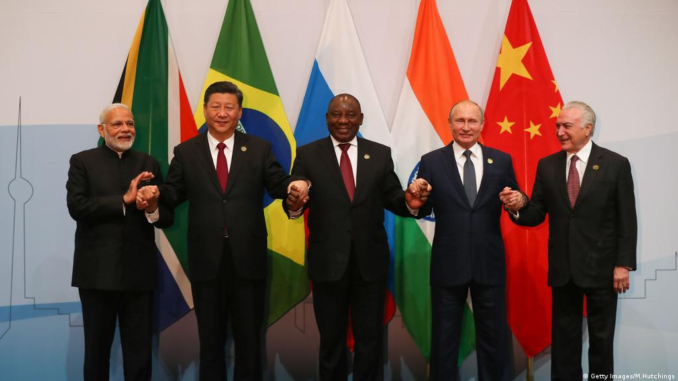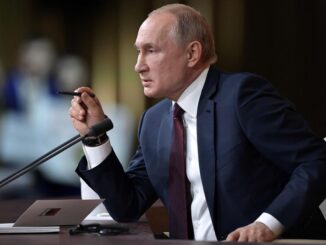
As I spent a summer avoiding energy discussions wherever possible (harder than normal; funny how 15 years of energy policy calamity was uninteresting until record utility bills scorched J. Q. Public’s eyeballs), the lazy days in the sun brought some needed clarity about the energy world, a world over which a sheer madness has descended (Trudeau/Germany/LNG-begging/hydrogen-offering – need I say more?).
Encircling the globe is an energy turmoil and upheaval of surely historical proportions (I can’t say it’s the biggest; I haven’t seen them all). The problem is obvious enough – a shortage of cheap reliable energy (or more precisely, the purposeful removal thereof) – but the solutions being bandied about seem to be utterly disjointed from any sort of reality (again, Trudeau/Germany/LNG/hydrogen). How can this be? How does the world unfold in such a suicidal way, with governments doing the noose-placing?
Laying in the sun digesting east coast seafood and drinking beer turned out to be way more productive than I’d thought. A few world events of the past decade took form in the mist as massive pillars that are going to define the energy world for the next half century. The cataloguing of these pillars is not an index of human misery or suffering; those move the world in different ways. No, here’s what I concluded were the defining data points of the upcoming energy future.
First on the list is Psy’s goofball hit “Gangnam Style”.
Second was some commentary in Disney’s Q2/2022 earnings conference call where it was noted that, “[Streaming] growth expectations were cut after Disney failed to renew cricket rights for the popular Indian Premier League.”
Third was a totally non-newsworthy essay I read on a socialist rebellion website by a young Australian climate activist experiencing battle fatigue.
Lastly, and tying it up neatly, was the general news flow/vibe coming off the BRICS phenomenon.
I wouldn’t be at all surprised if your list would be similar, but in the off chance it isn’t, here’s why those are noteworthy. The logic even held after the alcohol disappeared from my blood stream, which is always the first crucial step in true understanding.
The first two points are linked strongly, almost the same from the energy tectonics perspective. Psy, in case you don’t recall, is a South Korean pop star (I’m pretty sure the “South” is unnecessary but there you go, fans of pedantry) that, out of nowhere, landed a totally unique hit into the dead centre of western consciousness. The video has been watched 4.5 billion times. I’ve watched it about 0.5 billion times alone; it’s pretty funny.
What was so significant about the song/video’s success is that it emanated from a completely foreign culture. We’re not used to that. Western Europe and North America define pop culture, have for half a century. The world wants to look like Tom Cruise, not Kim Jong Il. Of course other regions have their own dominant cultures, but the western one was the dominant global standard. (If you don’t like that example, consider this: Two British companies (WGSN and Coloro/Ascencial) somehow decide for the world “what colours will be in next year”, and they work with Chinese textile mills to make it happen. I know this to be the case by the following clue: an article on a design website entitled “WGSN and Coloro announce which colours will be hot in 2023”.)
“Gangnam Style” showed that that dominance was fading, at least somewhat, or that the west showed a particularly strong interest in something pop-culture related that didn’t derive from itself (I know, I know, there are a million small examples of this, but 4.5 billion views…).
Disney’s earnings woes similarly reflect a new type of globalization that is ironically happening as other globalizations fall apart (for example, “free trade” is fading fast as countries scramble to secure the necessities of life). Ten or twenty years ago, Disney’s earning were dominated by the success of their movies, theme parks, and associated merch – think even of “Euro Disney”, an attempt to export the la-la land to Europe. Now, Disney’s earnings at least in significant part rely on…the company securing Indian premier-league cricket rights?!?! Disney, cornerstone of NA pop culture, is now looking to an utterly foreign market for growth (I’d wager that the non-Indian population of the US that watches Indian premier-league cricket would fit in a Ford F-150).
I’ll skip over the third pillar for a second and get to BRICS – an acronym for Brazil/Russia/India/China/South Africa. This block formed a decade or two ago to discuss areas of common interest outside of what the west wanted/dictated, or in reaction to that. BRICS has become very significant this past while for a few reasons: first, other economically-material countries have recently expressed interest in joining and second, the Russian war in Ukraine is, one way or another, forcing or forming new alliances and trading relationships out of sheer necessity. The BRICS countries with a lot of mouths (India and China particularly) are very interested in talking to the demented leader of a country that can feed those mouths, and provide oil, and natural gas, and fertilizer, etc. This is a huge global shift, and in a world of product/mineral/energy/food shortages, necessity will trump all else.
This brings us finally to the fourth pillar, the weary climate activist in Australia. In an essay entitled “There’s No Place for Burnout in a Burning World”, the worn-out guy chronicles his fatigue after more than a decade of “devoting his life to fighting climate change”. He notes how he’d watched Al Gore’s horror flick “An Inconvenient Truth” at age 14 via his father, and how his anxiety over Gore’s Truth led him to such a life’s devotion.
Here’s the thread to all of this in a nutshell: the burned out activist is a perfect symbol of the “shoot first aim later” reflexive fear reaction that has come to dominate western thought (yet again, Trudeau/Germany/LNG/hydrogen). When you think the world is on fire (literally, in the life of this activist; shortly after watching Gore’s movie he experienced first-hand Australia’s huge fires of several years ago, which solidified like concrete in his mind the “fact” that the world was in fact burning). Once in that mindset, even if there are no fires the next year or the year after in his world, there are somewhere in the world – and our media lets us know that 24/7/365.
Vast elements of the western world still think they control the show (witness North American/European interests attempting to inhibit African development of hydrocarbons, like activist American poindexter Bill McKibben writing in the British socialist journal the Guardian that “we” must stop the east African oil pipeline now).
Make no mistake about it – the fight for ‘the climate’ is all about control. If the weary and forlorn Australian activist and all his fellow fighters were serious about global CO2 emissions, they would be fighting tooth and nail for nuclear development (they often hate it (Greenpeace proudly proclaims they’ve been fighting it since 1971)), and they would be fighting tooth and nail for natural gas to replace coal in every corner of the world (and that would be a logical integration of utilizing the existing natural gas system as a switch to hydrogen, as the world appears to be racing towards).
These two developments alone – unbelievably daunting, but easier than the renewables/battery dream – would get them where they want to be, emissions-wise. But climate activists do neither, which is why I have zero time for the ‘climate’ debate as it is currently structured and argued in the media.
The “west” – North America and western Europe have about 800 million people. BRICS has over 3 billion, and climbing, as new nations seek to join. They are hungry. They want fuel. They don’t care if is diesel or coal or wind or solar or dung. They want fertilizer.
“We” want the world to conform, just as it always has (I would bet my bottom dollar that at one time one British monarch or another in some wizened and moldy parlor in a fit of post-dinner joviality sported a t shirt that said “My royal warship went to Papua New Guinea and all it brought me was this tee shirt”).
“We” are even turning on each other, as is inevitable when absurdist humour governs policy (the Australian activist noted similar cannibalistic behaviour as activists grow frustrated with a lack of results), such as, yet again, Trudeau/Germany/LNG/hydrogen.
Who in their right minds could witness such a farce – a truly-humbled economic giant (Germany) comes begging for fuel, which Canada has in abundance, and Canada offers instead to build them the world’s biggest cotton-candy machine). But what can Germany say to such a gaudy-sweater gift? They are as responsible as anyone, possibly more than anyone, for lecturing the world on how to go about a rapid green energy transition. Germany dominates the EU, so the EU went along. The EU dominates western social-engineering think tanks, so they went along. Canada followed suit because Brussels is closer spiritually to Ottawa than Swift Current.
Consider this: a survey of 1,100 German businesses indicated that 10 percent are considering abandoning energy-intensive businesses, and Germany still refuses to keep open its remaining three nuclear power plants (could be worse, I guess – in the UK, 60 percent of British factories are at risk of going under due to outrageous and at least partially self-inflicted power prices).
All of these western institutions have grabbed the energy reins, and thrown the providers of 80+ percent of the world’s energy into the cellar and padlocked the door. Trudeau’s green hydrogen announcement, as big an international energy policy statement as there’s been in memory, was held far from Canada’s energy heartland, and included no one from the energy sector that is currently shouldering the load.
Not only were they not invited, but Trudeau went out of his way to make an absurd statement about the lack of an economic case for LNG that was akin to a drama teacher going on stage at the Detroit Auto Show and telling the audience to get rid of all their wrenches because he didn’t think they were needed anymore.
The world is marching right past us, here in the west, in a certain way. Fear of a lack of fuel and food will do that to people. We are lucky here in North America to have bountiful resources and we should hold onto that gratitude dearly. It might not always be that way.



